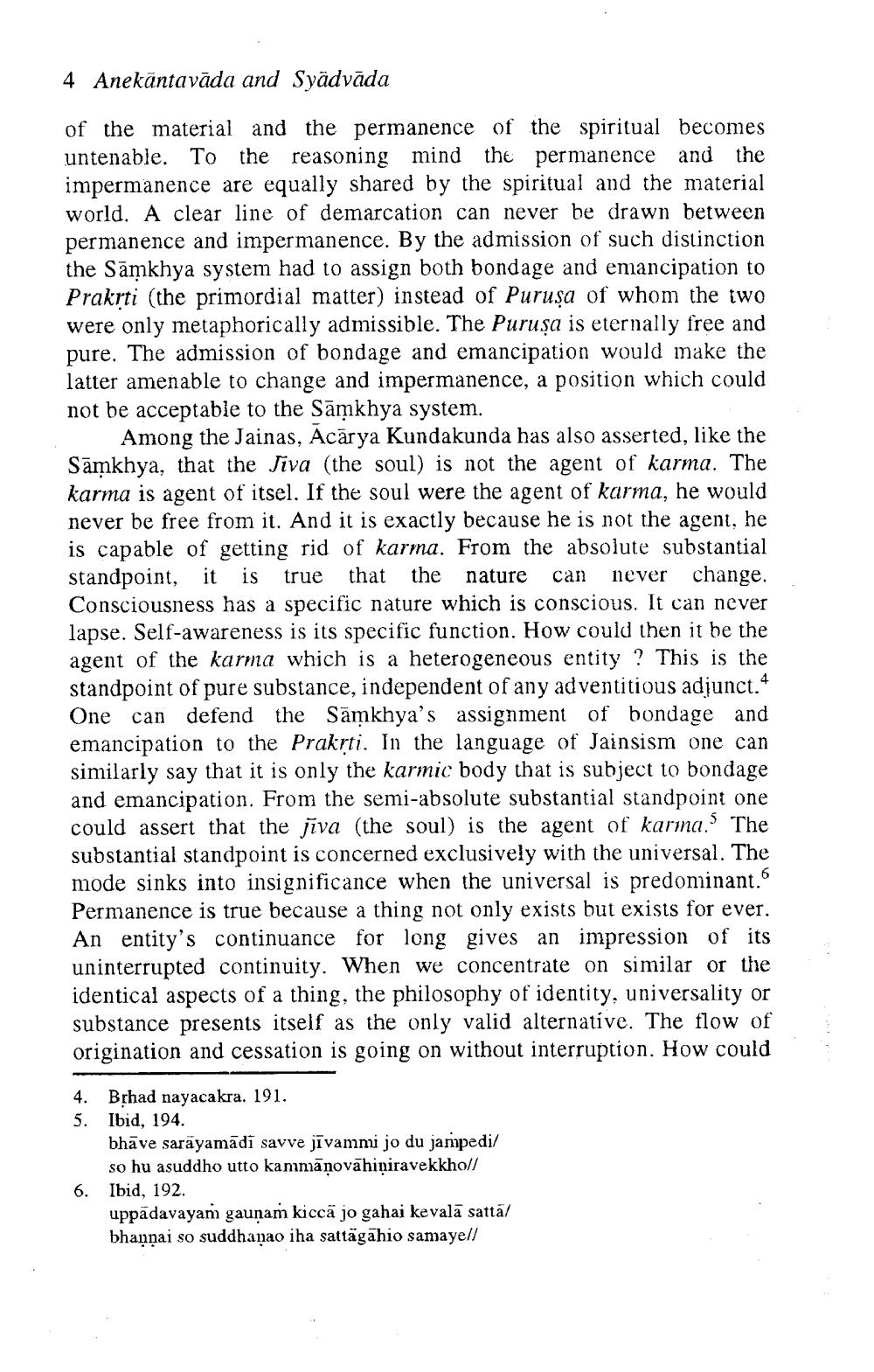________________
4 Anekāntavāda and Syādvāda
of the material and the permanence of the spiritual becomes untenable. To the reasoning mind the permanence and the impermanence are equally shared by the spiritual and the material world. A clear line of demarcation can never be drawn between permanence and impermanence. By the admission of such distinction the Sāmkhya system had to assign both bondage and emancipation to Prakrti (the primordial matter) instead of Puruşa of whom the two were only metaphorically admissible. The Purușa is eternally free and pure. The admission of bondage and emancipation would make the latter amenable to change and impermanence, a position which could not be acceptable to the Sāņkhya system.
Among the Jainas, Ācārya Kundakunda has also asserted, like the Samkhya, that the Siva (the soul) is not the agent of karma. The karma is agent of itsel. If the soul were the agent of karma, he would never be free from it. And it is exactly because he is not the agent, he is capable of getting rid of karma. From the absolute substantial standpoint, it is true that the nature can never change. Consciousness has a specific nature which is conscious. It can never lapse. Self-awareness is its specific function. How could then it be the agent of the karma which is a heterogeneous entity ? This is the standpoint of pure substance, independent of any adventitious adjunct. One can defend the Samkhya's assignment of bondage and emancipation to the Prakrti. In the language of Jainsism one can similarly say that it is only the karmic body that is subject to bondage and emancipation. From the semi-absolute substantial standpoint one could assert that the jīva (the soul) is the agent of karina. The substantial standpoint is concerned exclusively with the universal. The mode sinks into insignificance when the universal is predominant. Permanence is true because a thing not only exists but exists for ever. An entity's continuance for long gives an impression of its uninterrupted continuity. When we concentrate on similar or the identical aspects of a thing, the philosophy of identity, universality or substance presents itself as the only valid alternative. The flow of origination and cessation is going on without interruption. How could
4. Brhad nayacakra. 191. 5. Ibid, 194.
bhāve sarayamādī savve jīvammi jo du jampedi/
so hu asuddho utto kammānovāhiņiravekkholl 6. Ibid, 192.
uppādavayam gaunam kiccä jo gahai kevalā satta/ bhannai so suddhanao iha sattägahio samayell




